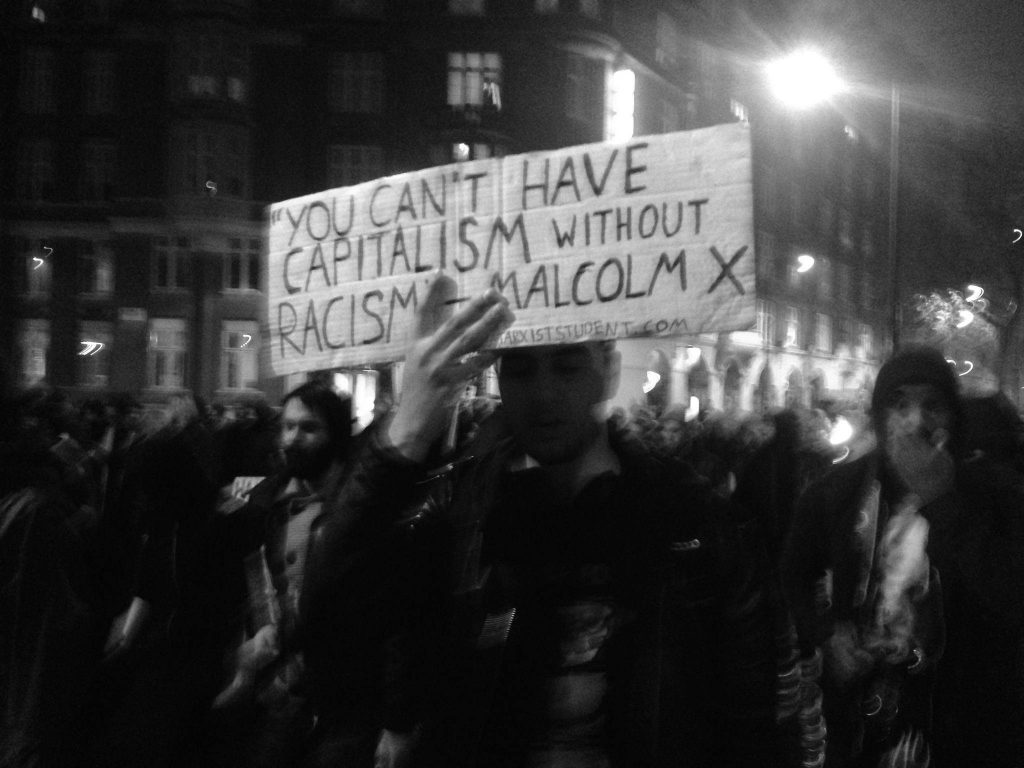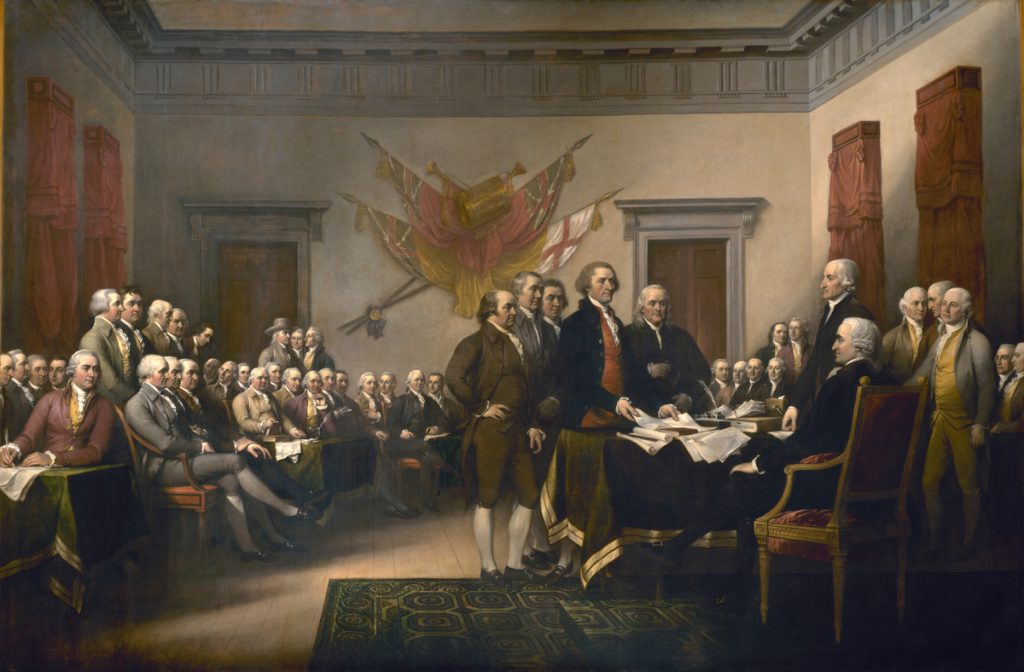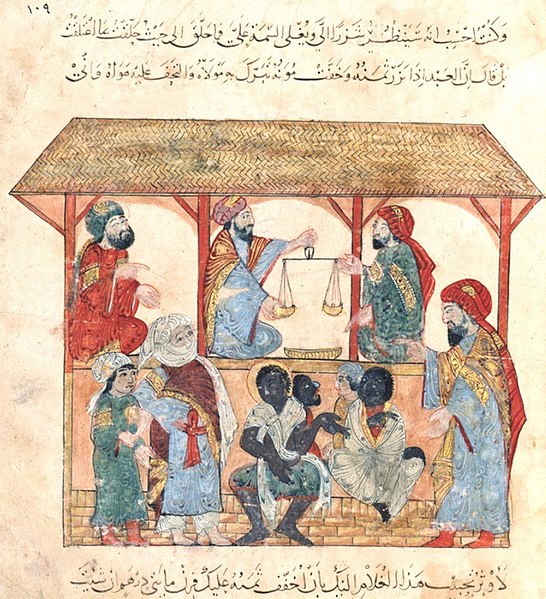“Claims that anti-racism must be accompanied by a critique of capitalism may be ideologically convenient, but they are factually clumsy. Capitalism as a system is neither racist nor anti-racist, and capitalist economics do not claim to magically eliminate the racism of individuals.
Since its conception “Capitalism” has been a term used as a pejorative. The word itself was coined by nineteenth-century Marxists to define the system of free-market economics that shaped the Industrial Revolution, before assuring their followers that this structure would soon implode under the weight of its contradictions and lay the groundwork for their march toward collectivist utopia. Capitalist societies are characterised by an economic system based on the private ownership of the means of production and their operation for profit. Its central features include recognition of property rights, capital accumulation, wage labour, voluntary exchange, a price system and competitive markets.
Whatever system currently characterises western economies, it is not unfettered capitalism. Government subsidies and trading laws heavily regulate and limit the private sector. Huge social security programs fund pensions, housing, childcare and unemployment benefits. In the United Kingdom, industries such as healthcare and education are almost entirely nationalised, and tax-payer funded. Arguments for property rights and limited government have ebbed and flowed in their influence throughout western politics, and their ideological victories have contributed to western freedom and prosperity.

Although anti-capitalism has long been a feature of the radical Left, it has recently become fashionable to accuse “capitalism” of being inseparable from historical western racism. A June 2020 Youtube video posted by “Socialist Appeal” titled “Capitalism is Racist“ framed a discussion on the Black Lives Matter movement in Britain. The same month, celebrated American activist and academic Angela Davis claimed in an interview with “Democracy Now!”: “We can’t eradicate racism without eradicating capitalism”.
Similar stances from National Association for the Advancement of Colored People (NAACP), the American Civil Liberties Union (ACLU), and other US civil rights organisations have left many people thoroughly misled about the roles of government and capitalism in regards to historic and contemporary racism.

In a 2019 essay for the New York Times, “1619 Project”, Matthew Desmond described how the “brutality” and racism of capitalism was evident from the horrors of American slavery. Yet “capitalism” could not possibly be the “cause” of slavery because slavery long preceded capitalism as the dominant cross-cultural social order. Slavery was characteristic of the classical civilisations of Athens and Rome. Slavery was practised (often without regard to race) in Africa, Asia, Europe, and by Native Americans. Slavery and forced labour remain rife across many areas of the developing and developed world. Many historians have even argued that the northern states where slavery was no longer practised would eventually have outcompeted the Confederates without firing a single shot. American slavery may have in fact hampered the young nation’s economic growth.
Although there were powerful anti-slavery precedents in western thought, the eighteenth-century liberal principles of self-ownership, freedom to trade, voluntary contracts, and innate equality were particularly successful in targeting the concept of segregation and slavery. Enlightenment writers such as Locke, Smith, Franklin, Jefferson, Madison, and Montesquieu, clearly understood the universal application of their ideas and consequently abhorred slavery.
In England and the US, religious dissenters inspired by the Enlightenment’s emphasis on innate equality were at the forefront of the abolitionist movement, as were those figures who applied the American founding fathers’ proclamations of liberty, equality and property rights to their natural conclusion: their application to all humans.

The economic outlook of the European powers who participated in the Atlantic Slave Trade was overwhelmingly mercantilist until the early nineteenth century. Mercantilism is based on the principle that the world’s wealth is static, and consequently, many European colonial powers attempted to accumulate the largest possible share of that wealth by maximising their exports and by limiting their imports via tariffs. This system brushed directly against notions of capitalism by encouraging barriers to international trade. In the late eighteenth century, Adam Smith argued that free trade must be employed in place of mercantilism, so that businesses could be motivated to specialise in producing goods they manufacture most efficiently, leading to higher productivity and greater economic growth.
Attempts to bond the notions of capitalism and racism may be ideologically convenient, but they are clumsy at best. These arguments take the issue of ethnic prejudice, which has plagued almost every human society far before the theories of market economics were formulated and considers it as a product of the European enlightenment.
Moreover, these ideological missions erase the inconvenient truth that societies in which the “capitalist” principles of natural equality, property rights and voluntary association have thrived, have forged some of the most successful and least prejudiced communities on earth.
In summary, capitalism as a system is neither racist nor anti-racist, and capitalist economics do not claim to magically eliminate the racism of individuals. However, the cornerstones of capitalism: equality, liberty and property, have historically paved the way for the fight against racist systems of oppression.


